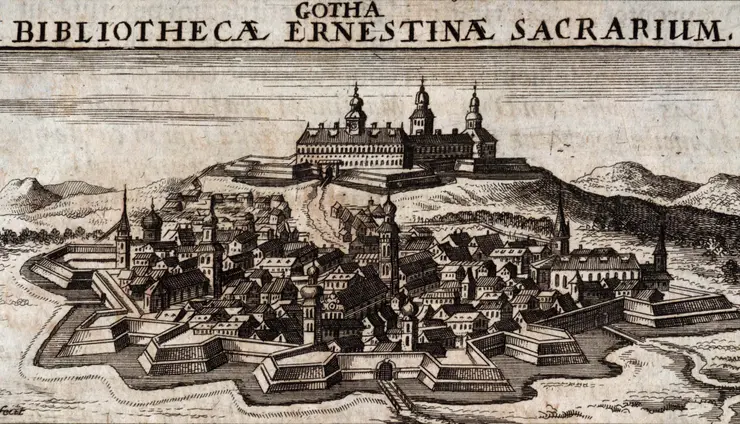Gotha and the Reformation are closely linked. After Johannes Langenhan had begun preaching the “new” gospel in 1522, the former Franciscan Friedrich Myconius (1490–1546) took up his work in Gotha as the first “Lutheran” pastor in 1524, thus laying the foundation for a consolidation and expansion of the Reformation in the territory. With the establishment of the Duchy of Saxe-Gotha by Duke Ernest I (1601–1675) in 1640, Gotha became the residential town of a small territory, which nevertheless achieved a certain degree of importance in the Holy Roman Empire of the German Nation from a dynastic, political and confessional point of view. Since the Thuringian Ernestines – in contrast to the Saxon Albertines – regarded themselves as the custodians of Lutheranism, they especially cultivated the memory of the Reformation here. Thus, the Ducal Library, founded in the course of the construction of Friedenstein Palace in 1647, became a place of remembrance and a centre of Reformation research at an early stage. Important scholars such as Veit Ludwig von Seckendorff (1626–1692), Wilhelm Ernst Tentzel (1659–1707) and Ernst Salomon Cyprian (1673–1745) testify to this. The Gotha Superintendent Karl Gottlieb Brettschneider (1776–1848) also made use of the library's excellent source material for his edition of Philipp Melanchthon's writings as part of the “Corpus Reformatorum”. Especially during the first 100 years of the Ducal Library's existence, the Reformation history collection was specifically built up and expanded, making research on the Reformation and its aftermath possible on an interdenominational and European level.
Today, due to its outstanding collections of manuscripts, correspondences, bequests and old prints on the history of the Reformation and Protestantism, the Gotha Research Library is a reference collection for the central and neighbouring northern German region.



